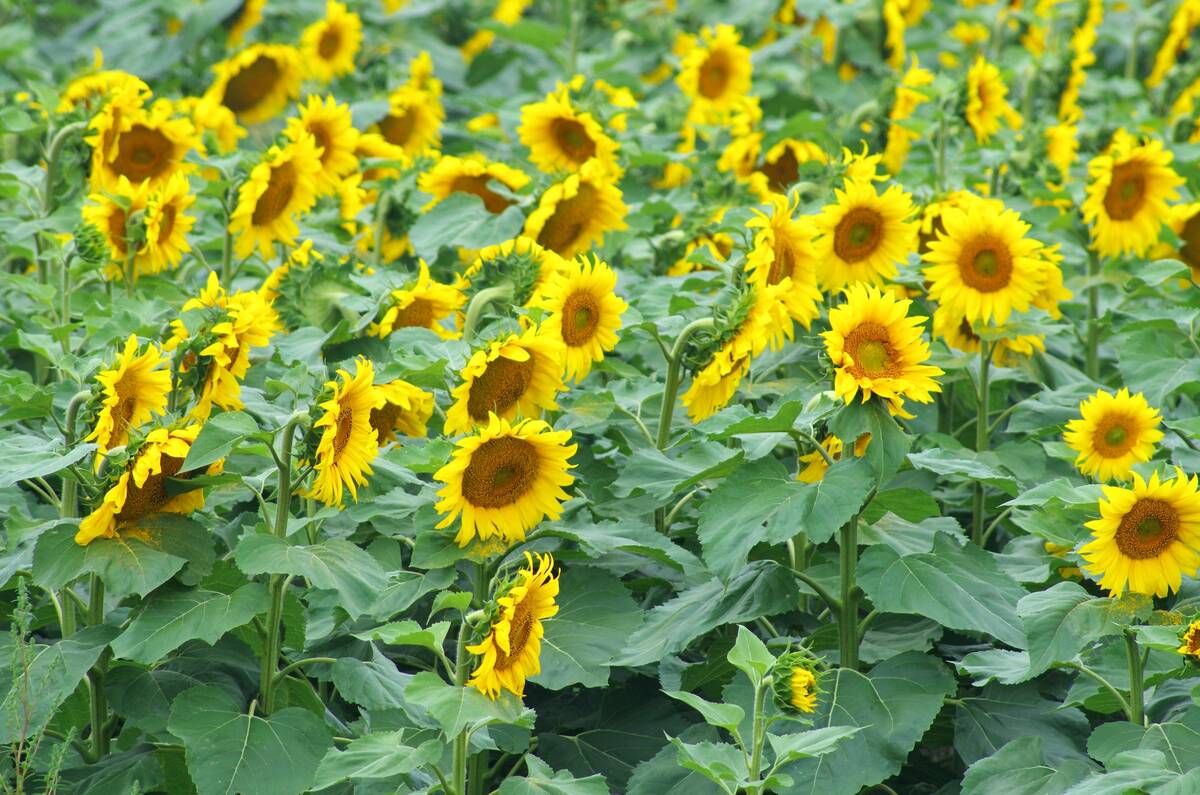The saying “never look a gift horse in the mouth” is bang on.
While the expression is actually a warning for people not to be too
picky about the condition of things they get for free, its reference to
the mouth is sound science. Horse behaviour and general health start at
the mouth, specifically with the teeth. The teeth are windows to the
animal’s dietary history.
Sue Ashburner is a large animal veterinarian at the Western College of
Read Also

Bird repellent gets emergency approval for sunflowers
Bird repellent gets emergency approval for sunflowers
Veterinary Medicine at the University of Saskatchewan in Saskatoon.
“In the wild, horses didn’t have dental problems. Only when we took
away their coarse grasses with long stems to chew up, with little bits
of grit in them, did horses start to have difficulty … they spent 20
out of 24 hours grazing, wearing off their teeth,” she said.
Horse teeth continue to grow about three millimetres per year until the
animal reaches its early 20s. If they don’t have regular access to
pasture and are kept on a luxurious diet of grains, short cut hay and
other processed feeds, they can’t wear away excess enamel. If this goes
untreated, health and behaviour difficulties occur.
“That is when we start to see problems – ulcers, lacerations to the
tongue and other soft mouth tissues. The animal becomes thin or picky
about food. There are opportunities for disease,” she said.
Problems with head shaking, drooling, fighting the bridle bit, handling
and control difficulties all can be caused by poor dental condition,
she said.
Animals that lose weight may have a dental problem. Excess tooth growth
will force horses to move their jaws in unusual motions to chew their
food. Or they may move the food toward the back of their throats.
These eating methods are inefficient and could hinder the animals’
ability to obtain enough feed to maintain condition.
Dental pain also prevents proper eating.
Feed such as grains, which must be ground to obtain energy, may slip
through the digestive tract unchewed and unprocessed due to dental
overgrowth. Finding whole grains in the manure is one symptom of dental
problems.
Floating, the grinding off of long teeth, can be done manually or with
a power grinder designed for the job.
“You need to know what you’re doing to properly float teeth, but if
you’re going to keep horses on your schedule, feed them a high energy
ration in the morning that they eat quickly, turn them out for the day
and get them back indoors at night, then you need to realize what you
are doing to their teeth and have them treated accordingly,” said
Ashburner.
“There have been many good horses sold for less than their value
because of behaviour problems only to have the new owner’s vet correct
it. The new owner winds up with a real bargain.”
















